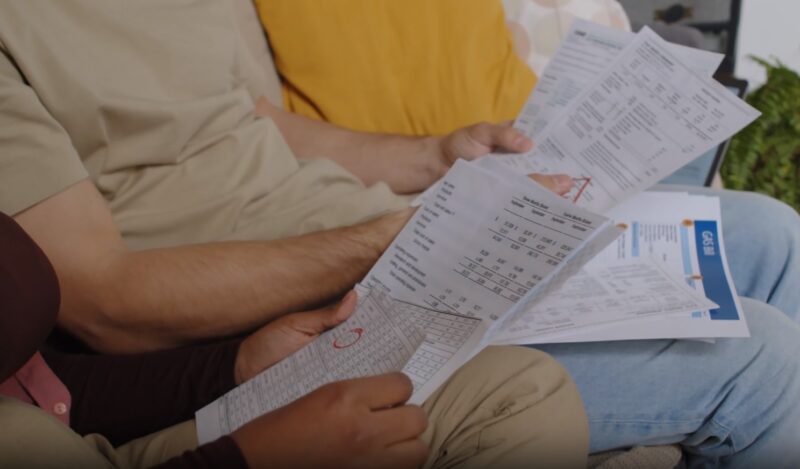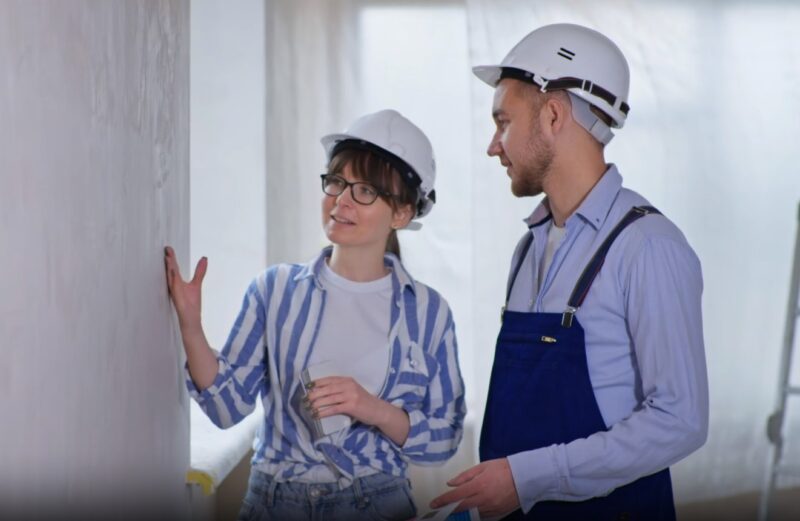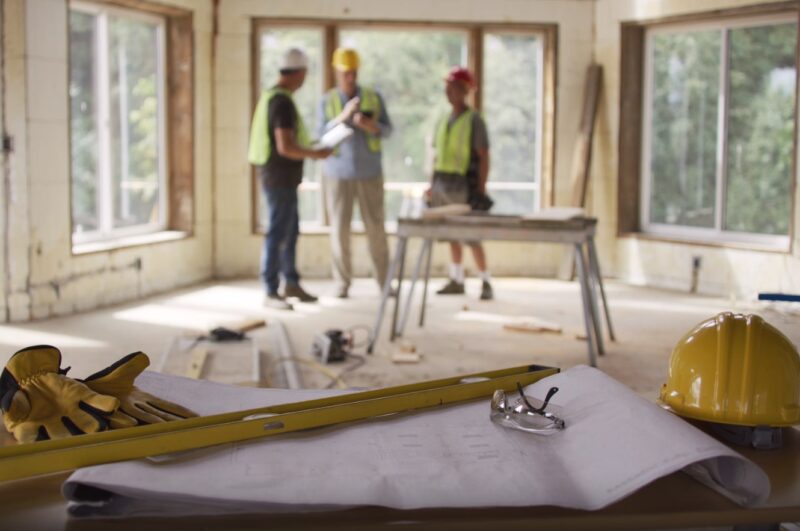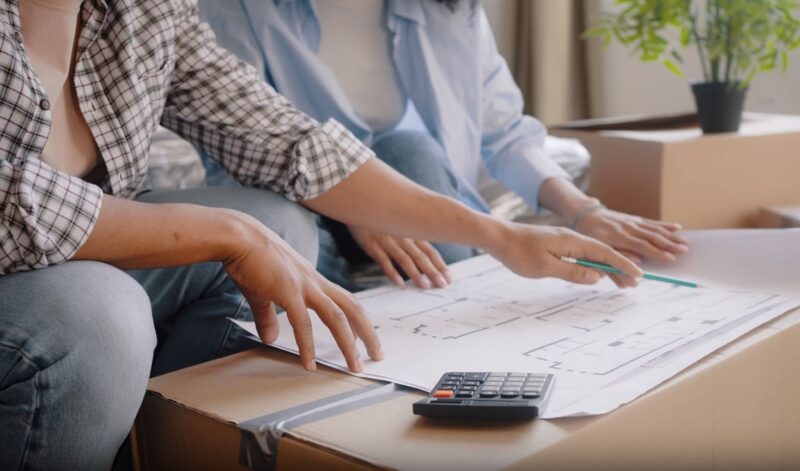When homeowners consider making improvements to their property, it’s often with the intention of increasing their home’s comfort, functionality, or aesthetic appeal. However, it’s important to be aware that certain home upgrades can also lead to an increase in property taxes.
Property taxes are typically based on the assessed value of a home, and when improvements are made that add to this value, taxes may rise accordingly.
Enhancements such as adding square footage with a new bedroom or bathroom, building a deck or porch, or upgrading kitchens and bathrooms can significantly alter your property tax bill.
Key Takeaways
Overview – Property Taxes

Property taxes are an annual financial obligation that homeowners must pay to their local government. These taxes are typically based on the assessed value of a property, which includes both the land and the structures on it.
Assessment Procedure:
- Local tax assessors determine property value.
- Assessed value reflects the market conditions and property characteristics.
- Assessment Frequency: Often performed annually or at set intervals.
Tax Rate and Calculation:
- The tax rate (or mill rate) is set by local governments and can vary widely.
- Property taxes owed = Assessed value × Tax rate.
Key Factors Influencing Property Taxes:
- Property size
- Property location
- Improvements and renovations
- Market changes
Homeowners should be aware that when they make substantial improvements—such as adding a room, renovating kitchens, or finishing basements—these can increase the assessed value of their home.
Consequently, such enhancements may lead to higher property taxes. However, routine maintenance and repairs typically do not affect tax liability significantly.
Key Home Improvements That Affect Property Taxes

Certain home improvements can lead to an increase in property taxes by elevating a property’s assessed value. These enhancements are generally those that expand the living space or significantly improve the property.
Additions and Expansions
- Room Additions: Building new rooms such as bedrooms or bathrooms typically leads to a higher property assessment, resulting in increased property taxes. For instance, adding a second story can substantially raise a home’s value and taxes.
- Extending Existing Spaces: Expanding the kitchen or master bedroom also falls into a category that could escalate tax obligations.
Major Renovations
- Complete Overhauls: Gutting and remodeling significant portions of a home, like a kitchen or bathrooms, can trigger a reassessment that increases taxes.
- Basement Finishing: Transforming an unfinished basement into a functional living space is a major renovation, often raising property taxes.
Exterior Improvements
- Landscaping: Significant landscaping improvements can enhance curb appeal and property value, affecting taxes.
- Adding a Deck or Patio: Outdoor living area improvements such as decks and patios elevate the usable space of a property, potentially increasing its assessed value.
Assessing the Impact of Improvements on Property Value

When homeowners consider renovating, it’s important to understand which home improvements can alter a property’s assessed value and, subsequently, its taxes.
Generally, the local tax assessor evaluates a home’s market value to determine property taxes, taking into consideration various factors such as location, size, and overall condition.
Major Renovations
Renovations that add floor space or that are structural in nature—such as room additions or finished basements—typically lead to an increase in assessed value. These alterations directly enhance the utility and square footage of the property.
Upgraded Features
Installing new roofing, modern windows, or HVAC systems can also result in a higher assessed value. As these improvements contribute to the efficiency and longevity of the home, they are seen as value-adding features.
Standard Upgrades: Not all upgrades cause a spike in property value.
-
- Cosmetic changes, such as painting or landscaping, usually do not significantly affect value.
- Energy-efficient upgrades, like energy-efficient windows, may be incentivized and typically don’t lead to a substantial increase.
Documentation and Appeals
Homeowners should maintain detailed records of all improvements. In case of a disputable increase in property taxes, these documents are essential for appeals or discussions with the assessor’s office.
Tax Assessment Process After Home Improvements

When homeowners undertake significant renovations, it typically triggers a reassessment of property tax. This process can lead to an increase in taxes due to the perceived enhancement in property value.
The Role of Home Improvement Permits
Whenever homeowners initiate improvements that alter their property’s structure or create additions, they are required to obtain permits from the local municipal authority.
The issuance of these permits is closely monitored by the tax assessor’s office as an indicator of potential changes in property value. Significant alterations such as building an extension, installing a pool, or extensive renovation are likely to be flagged for review.
Property Tax Reassessment
After improvements are completed, a property tax reassessment may occur, taking into account the increased value of the home. Local assessors evaluate the enhancements and recalibrate the property’s tax value.
Criteria for reassessment can include the scope of the project, its impact on the living space, and the added features.
For example, adding square footage or upgrading crucial home systems are likely to increase the valuation, while mere cosmetic changes usually do not. The new assessed value is then used to calculate the homeowner’s future property tax bills.
Strategies to Manage Increased Property Taxes

When homeowners face increased property taxes due to home improvements, there are several actions they can take to manage this financial burden. Two key strategies include challenging the assessment of their property and taking advantage of tax exemptions.
Appealing the Assessment
Homeowners have the right to appeal the assessed value of their property if they believe it does not accurately reflect the market value. It is crucial to review the assessor’s report for any errors and prepare evidence to support the claim, such as recent sales of similar properties in the area. They may also consider hiring a professional appraiser.
Understanding Tax Exemptions
Many local governments offer property tax exemptions that can mitigate the increase in taxes. Homeowners should research exemptions for which they might be eligible, such as those for seniors, veterans, or improvements that increase energy efficiency. Proper documentation and adherence to application deadlines are essential for securing these exemptions.
Frequently Asked Questions
How do adding square footage or renovations affect my property tax assessment?
Adding square footage to a home typically increases the assessed value, leading to higher property taxes. Renovations that add living space or significantly upgrade a property can increase property taxes because they enhance the home’s market value.
Can updating my home’s roof lead to an increase in my property taxes?
Replacing a roof is generally considered maintenance, which shouldn’t drastically affect property taxes. However, if the new roof significantly improves the home’s condition beyond simple maintenance, it may result in a small increase in property taxes.
Are there home improvements that can raise the value of my home without affecting the property tax?
Yes, certain improvements like painting, minor repairs, or replacing fixtures often increase home appeal without raising the assessed value. These types of updates are typically not detailed enough to impact property tax assessments.
What types of property improvements trigger a reassessment for taxation purposes?
Major renovations like adding rooms, extensive remodeling, or significant landscape changes may trigger a reassessment. Tax authorities often reassess property value after permits for these types of improvements are issued.
How does landscaping or enhancing outdoor living spaces influence property tax amounts?
Improving a property’s landscaping or outdoor amenities can lead to property tax increases if the changes are significant enough to affect the home’s value. However, routine landscaping or nominal enhancements usually do not have a substantial impact on property taxes.
Can I renovate my home without increasing property taxes, and what are the limitations?
Homeowners can perform certain renovations without raising property taxes, focusing on maintenance and non-structural improvements. Structural alterations or expansions are more likely to be flagged for reassessment and potentially increase property taxes.
Conclusion
While enhancing your home can significantly improve its comfort and functionality, it’s crucial to be aware of the potential increase in property taxes that major renovations can bring.
Understanding the tax assessment process, the types of improvements that trigger reassessment, and strategies to manage increased taxes are essential for homeowners.
Careful planning and awareness of these factors can help in making informed decisions about property upgrades, ensuring that the benefits of home improvements are enjoyed without unexpected financial burdens.
